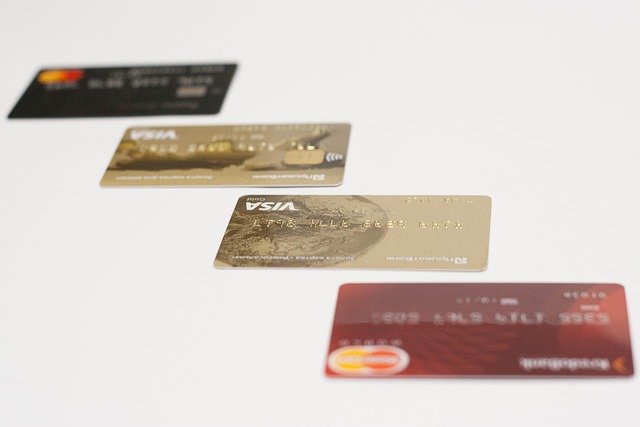Options for credit cards and financial flexibility
Credit cards may provide various benefits such as convenience, flexible payment options, or participation in reward programs. At the same time, they can carry financial risks, including debt accumulation and potential impact on credit scores. Exploring available features and terms could help in identifying options that align with individual financial preferences and goals.

What Makes Credit Cards So Convenient?
The convenience of credit cards extends far beyond simply replacing cash in your wallet. These versatile payment tools allow you to make purchases online, book travel arrangements, and handle unexpected expenses without carrying large amounts of cash. Credit cards also provide enhanced security features, including fraud protection and the ability to dispute charges, which traditional payment methods cannot match.
Modern credit cards integrate seamlessly with digital payment platforms, enabling contactless transactions and mobile wallet compatibility. This technological advancement has made purchasing faster and more secure, particularly important in today’s increasingly digital marketplace. Additionally, credit cards offer detailed monthly statements that help track spending patterns and manage budgets more effectively.
How Do Credit Cards Help Build Your Credit History?
Building credit history represents one of the most significant long-term benefits of responsible credit card usage. Your payment history, credit utilisation ratio, and length of credit accounts all contribute to your credit score, which lenders use to assess your creditworthiness for future loans, mortgages, and other financial products.
Consistent, on-time payments demonstrate financial reliability to credit bureaus, whilst maintaining low balances relative to your credit limits shows responsible borrowing behaviour. Young adults and those new to credit can particularly benefit from starter credit cards designed specifically for building initial credit history. These foundational credit profiles become increasingly valuable as you progress through major life purchases like homes or vehicles.
What Reward Programs and Perks Are Available?
Reward programs and perks have transformed credit cards from simple payment tools into valuable financial assets. Cashback cards typically offer 1-5% returns on purchases, whilst points-based systems allow redemption for travel, merchandise, or statement credits. Premium cards often include additional benefits such as airport lounge access, travel insurance, and concierge services.
Different cards cater to various spending patterns, with some offering enhanced rewards for specific categories like groceries, petrol, or dining. These targeted rewards can result in substantial annual savings when aligned with your regular expenses. However, it’s essential to evaluate annual fees against potential rewards to ensure positive value from your card choice.
Understanding the Risks of Debt Accumulation
Risks of debt accumulation represent the primary concern associated with credit card usage. High interest rates, typically ranging from 18% to 29% APR, can quickly transform manageable balances into overwhelming debt burdens. Minimum payment structures are designed to extend repayment periods, resulting in significantly higher total costs over time.
Credit cards can also facilitate lifestyle inflation, where easy access to credit encourages spending beyond one’s means. This psychological aspect, combined with promotional offers like zero-percent introductory rates, can mask the true cost of credit card debt. Understanding these risks and implementing disciplined spending habits are crucial for maintaining financial health whilst enjoying credit card benefits.
How Do Credit Cards Affect Your Credit Score?
Impact on credit score varies significantly based on how you manage your credit cards. Payment history accounts for 35% of your credit score, making on-time payments essential for maintaining good credit. Credit utilisation, representing 30% of your score, measures how much of your available credit you’re using, with experts recommending keeping this below 30%.
Opening new credit accounts can temporarily lower your score due to hard inquiries, whilst closing old accounts can reduce your credit history length and available credit. However, responsible long-term usage typically results in score improvements that open doors to better financial products and lower interest rates across all types of lending.
| Card Type | Provider | Annual Fee | Typical APR | Key Benefits |
|---|---|---|---|---|
| Cashback Card | Barclaycard | £0 | 22.9% | 0.5% cashback on purchases |
| Travel Rewards | British Airways Amex | £195 | 22.9% | Avios points, companion voucher |
| Premium Card | Amex Platinum | £575 | 22.9% | Airport lounge access, travel credits |
| Student Card | Capital One | £0 | 34.9% | Credit building, no credit history required |
Prices, rates, or cost estimates mentioned in this article are based on the latest available information but may change over time. Independent research is advised before making financial decisions.
Conclusion
Credit cards offer powerful financial flexibility when used responsibly, providing convenience, rewards, and credit-building opportunities. However, success requires understanding both benefits and risks, choosing appropriate cards for your financial situation, and maintaining disciplined spending habits. By focusing on timely payments, managing credit utilisation, and selecting cards that align with your spending patterns, you can harness these financial tools to enhance rather than hinder your financial wellbeing. The key lies in treating credit cards as a financial strategy rather than simply a convenient payment method.




